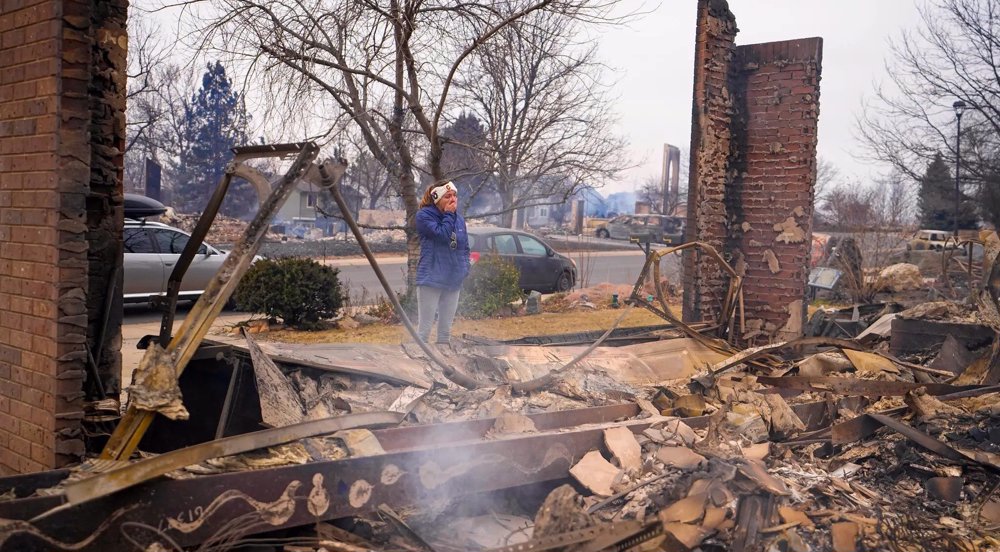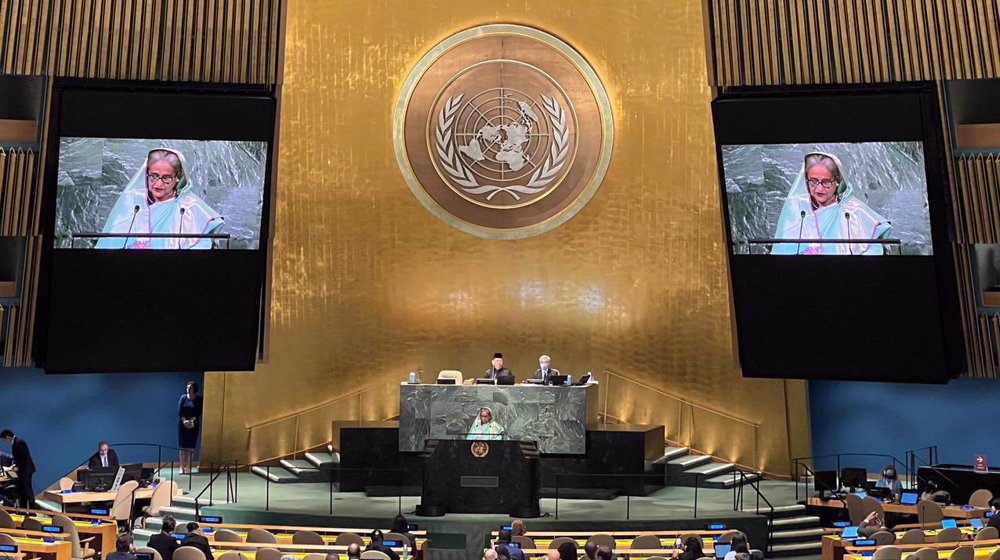Climate change threatens to destroy 'the things Americans value most’: Report
The US must step up efforts to reduce greenhouse gas emissions over the next three decades as climate change exacerbates natural disasters and threatens water supplies and public health across the country, according to a draft report by the federal government.
The authors of the National Climate Assessment wrote in the 1,695-page draft released on Monday that many of the harmful effects people are already experiencing around the world will worsen as the air warms, and new risks will emerge in the future.
The United States has warmed about 68 percent faster than the planet as a whole over the past five decades, rising 2.5 degrees Fahrenheit (1.4 degrees Celsius) above pre-industrial levels. The report also states that the land has warmed faster than the ocean, higher latitudes have warmed faster than lower latitudes, and the Arctic has warmed the fastest.
In the report, it is pointed out that weather-related natural disasters cause huge economic losses through damage to infrastructure, disruption of vital services and loss of property.
The country has experienced an average of nearly eight $1 billion disasters each year for the past forty years but has seen that average increase to nearly 18 events per year in the past five years.
The report also described how millions of Americans have been displaced by climate disasters such as wildfires in the western United States and rising sea levels in coastal cities. Climate change has also hurt regional economies by reducing crops in the Midwest and disrupting fishing in Alaska.
Across the country, deadly and destructive extreme weather events such as heat waves, heavy rainfall, droughts and wildfires are now becoming more frequent and intense.
In the 1980s, the country suffered an extreme weather disaster that cost at least $1 billion in economic damage, after adjusting for inflation, on average every four months. "There is now an average of one every three weeks," the draft says. Some extreme events, such as last year's Pacific Northwest heat wave that killed at least 229 people, would have been virtually impossible without global warming.
The report's authors highlight how climate change has disproportionately burdened different US communities with lower-than-average carbon footprints.
The authors also wrote that climate change will have a greater impact on communities that are currently under the most pressure, such as indigenous peoples, people of color, and low-income communities.
The report highlights that these frontline communities are the first and worst affected by climate change, but often produce the least amount of greenhouse gases that cause climate change.
According to the report, the United States has reduced greenhouse gas emissions by 12 percent between 2007 and 2019, and has made advances in renewable energy technologies such as wind and solar and reducing the use of coal, but to achieve the goal of the Biden administration to achieve for a net-zero economy by 2050, greenhouse gas emissions must be reduced by more than 6% each year.
The report further notes that accelerating low-carbon technologies, increasing public transportation, creating incentives for the purchase and use of renewable energy and electric vehicles, as well as improving agricultural land management are among the actions that can be done with short-term benefits to reduce the amount of greenhouse gases.
The authors of the report believe that the worst consequences of climate change can be limited by large-scale actions that rapidly decarbonize the economy and prepare societies for its impacts. Long-term planning and investment in transformative mitigation and adaptation provide the opportunity to create a healthier, fairer and more resilient nation.
The congressionally-mandated report comes as leaders from around the world gather this week at the United Nations Climate Change Conference in Egypt to discuss methods and set specific goals to combat climate change.
The full report is set for release in 2023 after public comment. The US government is required to publish a national climate assessment every four years.

Thousands demonstrate on Presidents’ Day to call Trump 'A Tyrant'

US Federal workers protest Trump workforce cuts

Trump mass deportations met with NY protest
Hezbollah's display of power proved resistance cannot be eliminated: Iran parl. speaker
Israel escalates West Bank raids as official says regime seeking to complete Gaza genocide
Australian senator smeared by anti-Iran groups for saying Iranian women 'have a voice'
Palestinian man dies in Israeli prison as Foreign Ministry urges intl. probe into regime’s crimes
Putin says not opposed to Europeans’ involvement in Ukraine talks
VIDEO | Iranian Kurdish protesters demand European action against PKK, PJAK terror
VIDEO | Israel expands offensive in northern West Bank, deploys tanks to Jenin
VIDEO | Spaniards fill streets of Cádiz in solidarity with Palestine















 This makes it easy to access the Press TV website
This makes it easy to access the Press TV website